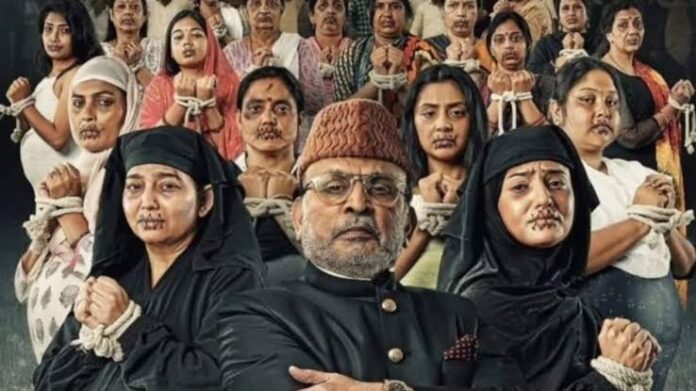– Dr. Zafar Darik Qasmi
It is often said that cinemas are a reflection of society, playing a potent role in fostering the coexistence of a plural culture. Many films convey affirmative messages, while others leave a negative impression. Hindi films, in particular, have significantly contributed to the Urdu literature, with notable films like Mughal-e-Azam, featuring eloquent Urdu. The reputed Urdu daily Inqilab even dedicates a page to Urdu Literature in Cinemas.
However, the scenario has changed. Cinemas, once watched to eradicate social dogmas, are now seen as promoting them. This partial attitude in films is not new; in the past, some films have aimed to undermine social integrity. For example, a film titled Indian alleges that while not all Muslims are terrorists, every terrorist is a Muslim. Many patriotic films portray Muslims as disloyal to the country, casting characters who are not fully aware of their religion, yet these characters are perceived as true representatives by the audience. This deliberate manipulation calls for an understanding of their intent and public awareness of their objectives.
Films are increasingly being produced with political ambitions, politicizing art and literature. Indian films are seen as a strong means of promoting Islamophobia. Artists risk their integrity for monetary gain. Recent films like 72 Fairies, The Kerala Story, Kashmir Files, and Hamare Barah indicate a trend of Islamophobic narratives.
Legal expert Professor Tahir Mahmood criticized Hamare Barah, stating, “The movie has desecrated Quranic verses and Hadith. The verse used at the beginning is related to Shariah etiquette of physical relations of spouses, but only a few initial words are aggressively recited, with the rest omitted. This film reeks of deliberate mischief and malice. The creators should be prosecuted for offending religious sentiments.”
Renowned Islamic scholar Prof. Akhtarul Wasey expressed similar concerns, noting, “For the past ten years, Muslims have been specifically targeted through academic, filmic, and practical vilification. Films like Kashmir Files and Hamare Barah present a fabricated image of Muslims, aiming to defame the entire community. The Ministry of Home Affairs or the official population agency of India never reported such birth rates among Muslims. Films like Hamare Barah are part of a hateful propaganda against Islam.”
Bollywood films now seem to promote Islamophobia, with Hamare Barah being a clear example. This shift contrasts with earlier films that promoted religious tolerance and national unity in India’s pluralistic society. While hateful films may earn cheap fame and money, they damage Indian society and harm national unity and the Muslim community.
Hollywood films also contribute to Islamophobia, exacerbated by long-standing stereotypes and post-9/11 narratives that portray Muslims as extremists and sources of violence. Western media has played an inappropriate role, presenting a skewed image of Islam and contributing to global Islamophobia.
Inaccurate portrayals in Hollywood and Bollywood films defame the Muslim community and distort Islam. This issue is compounded by certain preachers in society who misinterpret the Qur’an and Hadith for popularity, providing ammunition for Islamophobic narratives. Therefore, it is crucial to research and verify religious teachings before discussing them publicly, avoiding aggressive or narrow-minded preachers at religious gatherings.
Islamophobia in cinemas represents a significant barrier to coexistence in a plural society, necessitating a serious reconsideration of the messages films convey and their impact on social harmony.
[zafardarik85@gmail.com]




